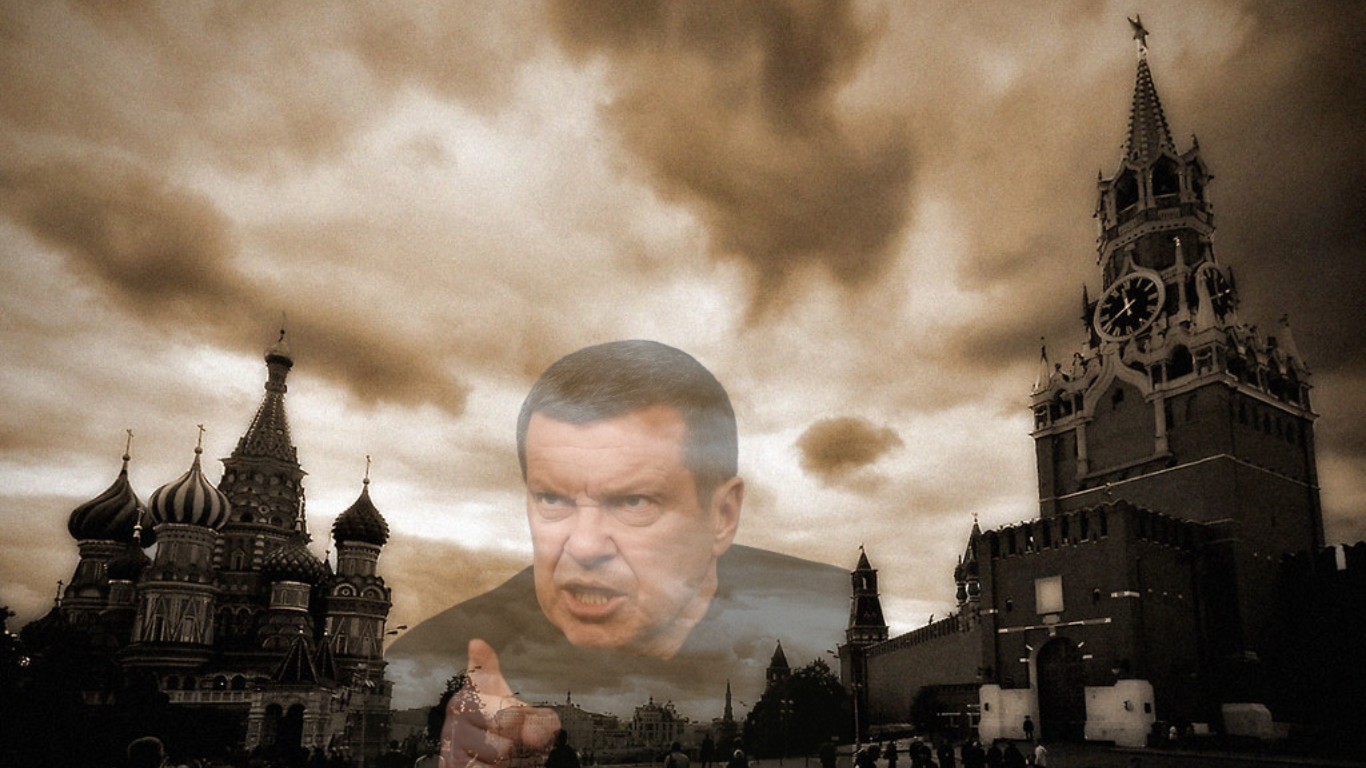Solovyov’s jitters expose Kremlin’s unease over Azerbaijan’s independent path

When President Ilham Aliyev sat down with Al-Arabiya and described the Soviet Union’s entry into Azerbaijan not as liberation but as occupation, the remark struck a raw nerve in Moscow. The reaction was swift. Russian state media erupted with outrage, and Kremlin-aligned commentators like Vladimir Solovyov hurled criticism and threats at Baku. Yet the fury betrayed something deeper: President Aliyev had punctured one of Russia’s most enduring myths.
Myths are central to every nation’s self-image. They can inspire confidence, bolster patriotism, and provide cohesion in difficult times. But when myths are mistaken for reality—when rulers and intellectuals elevate them to the status of sacred truth—they can become dangerous. Modern Russia has reached precisely this stage. Its leadership clings to stories of benevolence, strength, and inevitability, while dismissing inconvenient facts.
One such myth is that Azerbaijan lacks a tradition of statehood. This charge, long used by Armenia, has now found currency in Russian media. It is true that the name “Azerbaijan” was formally applied north of the Araz River only in 1918. Before then, states in the region bore names like Caucasian Albania or Shirvan. But Russia’s own history follows a similar trajectory: today’s Russian Federation traces back to the Principality of Moscow, later the Russian Empire, the Soviet Union, and finally its current form. Early rulers, such as the Rurikid and Romanov dynasties, were of Scandinavian descent, not Slavic. To dismiss Azerbaijan’s statehood as illegitimate on historical grounds while overlooking Russia’s own transformations is not only illogical but deeply hypocritical.
Other myths stem from the Soviet period. The official narrative insists that republics willingly joined the Union, that socialism brought prosperity, free housing, and world-class healthcare, and that Moscow uplifted its peripheries. History tells another story. In April 1920, more than 70,000 Red Army troops and armoured trains invaded Azerbaijan. Voluntary union does not arrive on armoured railcars.
The economic record is equally stark. Before the occupation, Azerbaijan supplied more than 60 per cent of the world’s oil. By the 1990s, as the Soviet Union collapsed, its oil production barely covered domestic consumption. The only reason Azerbaijan could rebound after independence was that offshore Caspian reserves had been left untapped—too costly for Soviet exploitation. On those reserves, Azerbaijan has built three decades of rapid growth, multiplying its economy more than a hundredfold. One can only imagine what might have been possible without decades of Soviet depletion.
The demographic legacy is darker still. At the time of the Bolshevik invasion, the populations of northern and southern Azerbaijan were roughly equal. By the Soviet collapse, southern Azerbaijanis outnumbered their northern kin by four or five to one. As in Ukraine and Kazakhstan, famine and repression likely claimed millions of lives. Yet unlike those countries, Azerbaijan has scarcely begun to study this chapter of its past. Aliyev’s words barely scratched the surface—they revealed only the visible tip of an iceberg.
Russia’s counter-narrative is predictable. Propagandists now argue that Russia has always been Europe’s dominant power, that Azerbaijan’s success depends entirely on Turkiye, and that Moscow could neutralise Baku with a raised eyebrow. But history complicates these claims. Russia’s record against a united Europe is poor: it lost in the Crimean War and fared poorly in World War I. Its most celebrated victories, against Napoleon and Hitler, came only with allies—and at staggering human cost. Far from demonstrating strength, those losses reveal a pattern of weakness and disregard for human life.
As for Turkiye, geography limits its ability to intervene directly in any conflict over Azerbaijan. Without a shared border, Ankara’s role would likely be confined to providing arms and financial support, with direct defence possible only in Nakhchivan. But the more important point is that Azerbaijan has developed its own capacity to resist. Over the past three decades, as Russia has stagnated, Azerbaijan has modernised, expanded its economy, and strengthened its military. Moscow’s insistence that Azerbaijan’s achievements are simply borrowed from Turkiye betrays an unwillingness to face a harsher truth: a once-dominant empire has been outpaced by a former colony.
President Ilham Aliyev’s quote in his interview was exasperating not because it invented anything new, but because it reminded Russians of what they prefer to forget. Myths can survive for generations, but they crumble when confronted with evidence, logic, and lived reality. The Kremlin can rage, its propagandists can sneer, but the process has already begun. The myths are breaking. More will follow.
Here we are to serve you with news right now. It does not cost much, but worth your attention.
Choose to support open, independent, quality journalism and subscribe on a monthly basis.
By subscribing to our online newspaper, you can have full digital access to all news, analysis, and much more.
You can also follow AzerNEWS on Twitter @AzerNewsAz or Facebook @AzerNewsNewspaper
Thank you!

